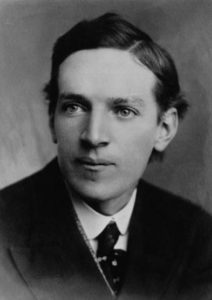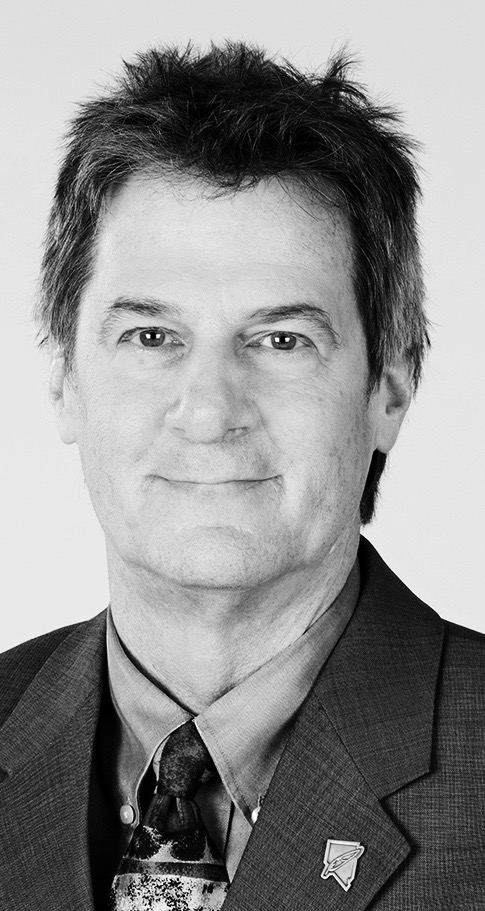That’s not how journalism works.
When the Washington Post exposed the attempt by a woman to infiltrate the social circles of journalists in an attempt to discredit them and their publications, it also revealed the chasm between how reporters do their jobs and how much of the public thinks journalism happens.
It’s not cloaks and daggers. It’s the opposite of hiding and lying.
The first thing reporters are taught when they learn how to conduct an interview is to introduce themselves, whether it’s in person or on the phone. “Hi, I’m Barry Smith. I’m a reporter for the local newspaper.”
The second thing is, no matter what somebody tells you, confirm it.
The third lesson? You’re an observer, not a participant.

I could go on, but I’d end up reciting the entire ethical canon of the Society of Professional Journalists. Glancing through those guidelines for truth and credibility, it appears the woman who tried to sting journalists on behalf of Project Veritas, Jaime Phillips, ignored every one except plagiarism.
Celebrating the troublemakers
Here’s the thing, though. My profession always has celebrated the troublemakers, the muckrakers and rebels, the rule-breakers and gadflies. Mark Twain. Upton Sinclair. Hunter Thompson.
“It lies by day, it lies by night, and it lies for the very lust of lying. Its news-gatherers, I sincerely believe, only obey orders.”
That’s a quote about the press from a newspaperman. Specifically, it’s about the Associated Press in a letter by James Barry, at the time the editor of the San Francisco Star. It appears in Sinclair’s book, The Brass Check: A study of American Journalism, published in 1919.
And therein lies the fundamental strength and weakness of journalism under the First Amendment: Anyone can do it.
But to do it well — to be believed, trusted and credible — takes work. There are no shortcuts.
What the public needs to be able to see is the process that goes into a story. We’ve taken for granted that readers trust journalists to follow the SPJ ethical code, when there’s an entire industry devoted to faking the news. And the billions of people on social media are willing and able to spread every piece of gossip around the globe without a second thought.
In truth, far too many reputable organizations do take shortcuts. They’ve removed copy editors, fact-checkers and ombudsmen from the process of verifying information and putting it into context before they send it out. The cry once was “Accuracy, accuracy, accuracy.” Now it’s become “Expediency.”
It won’t work that way
In that sense, journalism reflects society. But it doesn’t work that way. It won’t work that way.
Here’s a quote from Sinclair’s introduction to The Brass Check, on why half of the book was his personal story:
If I were taking the witness-chair in a court of justice, the jury would not ask for my general sentiments and philosophic opinions; they would not ask what other people had told me, or what was common report; the thing they would wish to know — the only thing they would be allowed to know — is what I had personally seen and experienced. So now, taking the witness-stand in the case of the American public versus Journalism, I tell what I have personally seen and experienced. I take the oath of a witness: the truth, the whole truth, and nothing but the truth, so help me God. After this pledge, earnestly given and earnestly meant, the reader must either believe me, or he must exclude me from the company of civilized men.
Yet Sinclair’s book is full of his opinions — his “general sentiments” — and it colors the narrative throughout. Although a journalistic code of ethics first was adopted in 1923 in response to Sinclair’s criticisms, the power of his reporting was undercut because his anger was palpable and his motives were transparent. He wanted to punish journalists, and in so doing he punished journalism.
So the dawn of the twenty-first century finds us in a position not entirely unlike the one found by Sinclair and his compatriots eighty plus years ago. The media are exceptionally concentrated, the journalism is of dubious integrity, journalists are demoralized, and the political system is awash in corruption.
That quote is from a 2002 essay by Ben Scott and Robert W. McChesney titled “Upton Sinclair and the Contradictions of Capitalist Journalism,” printed in Monthly Review, a socialist magazine. It’s worth pondering how radically different views arrive at the same conclusion. Is corporate-controlled media — Fox News, MSNBC, the New York Times, Sinclair Broadcast — pushing an agenda on us? Or is it actually the giant tech platforms — Google, Facebook — who are setting the agenda, and we have truly arrived at the era in which the medium is the message?
If so, is it a progressive, liberal message or a conservative, status-quo agenda?
The lesson of the muckrakers
The lesson of journalists like Sinclair is that it is possible for one dedicated, honest person to make a difference.
I had intended to include here a general discussion of past practices of deception in journalism and the ethics of lying. But Jack Shafer at Politico already did it, so just read his account.
I was just beginning my career as a journalist when the Mirage bar sting was being reported, and later I worked with a few of the people involved in it. It remains controversial for its methods, but let’s be clear: The Mirage was a lie, but the Sun-Times went back to all the people it accused and confronted them with the evidence to get their side of the allegations. They did the work. None of the inspectors denied their crimes; none went to jail for them, either.
I’ll close with this quote from Elon Musk from a recent article in Rolling Stone:
It’s really inconsistent to not be the way you want the world to be, and then through some means of trickery, operate according to one moral code while the rest of the world operates according to a different one. This is obviously not something that works. If everyone’s trying to trick everyone all the time, it’s a lot of noise and confusion. It’s better just to be straightforward and try to do useful things.
 Nevada Press Association The best in Nevada journalism since 1924
Nevada Press Association The best in Nevada journalism since 1924
